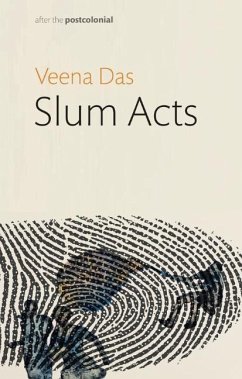This book examines the ways in which knowledge that is inordinate, excessive, and overwhelming comes to mark everyday life in low-income, poor neighborhoods in Delhi with crumbling infrastructures and pervasive violence. Based on long-term ethnography in these spaces, this book provides a detailed analysis of the institutions of the state, particularly of policing and law in India. It argues that catastrophic events at the national level and the techniques of governance through which they are handled secrete forms of knowing that get embedded into the nooks and crannies of everyday life, eroding trust, sowing suspicions, and leading to an exhaustion of capacity for care. Yet the paths to survival honed within these spaces generate critique that compels us to ask how punishment and torture become routinized in democracies. Following the paths of those who struggle with these questions in these neighborhoods, the book finds that deep philosophical questions, such as the inhuman as a possibility of the human rather than its boundary, arise in the weaves of these lives and are experienced as a dimension of the social.
This book will be of great interest to students and scholars in anthropology and throughout the social sciences and humanities.
Hinweis: Dieser Artikel kann nur an eine deutsche Lieferadresse ausgeliefert werden.
This book will be of great interest to students and scholars in anthropology and throughout the social sciences and humanities.
Hinweis: Dieser Artikel kann nur an eine deutsche Lieferadresse ausgeliefert werden.
"This book draws on years of meticulous research on everyday life in Delhi to open a new interpretation of slums with enormous political significance. Focusing on inordinate knowledge, Veena Das traces the violence forged in entanglements of punitive law, state torture, poverty, and vernacular critique. She makes us live the ground experience of biopolitics, massively escalated by contemporary state violations in India, and affectively endured by the poor in not always tragic ways. The thought in this book is deep, elegant, and urgent."
Ash Amin, University of Cambridge
Ash Amin, University of Cambridge








